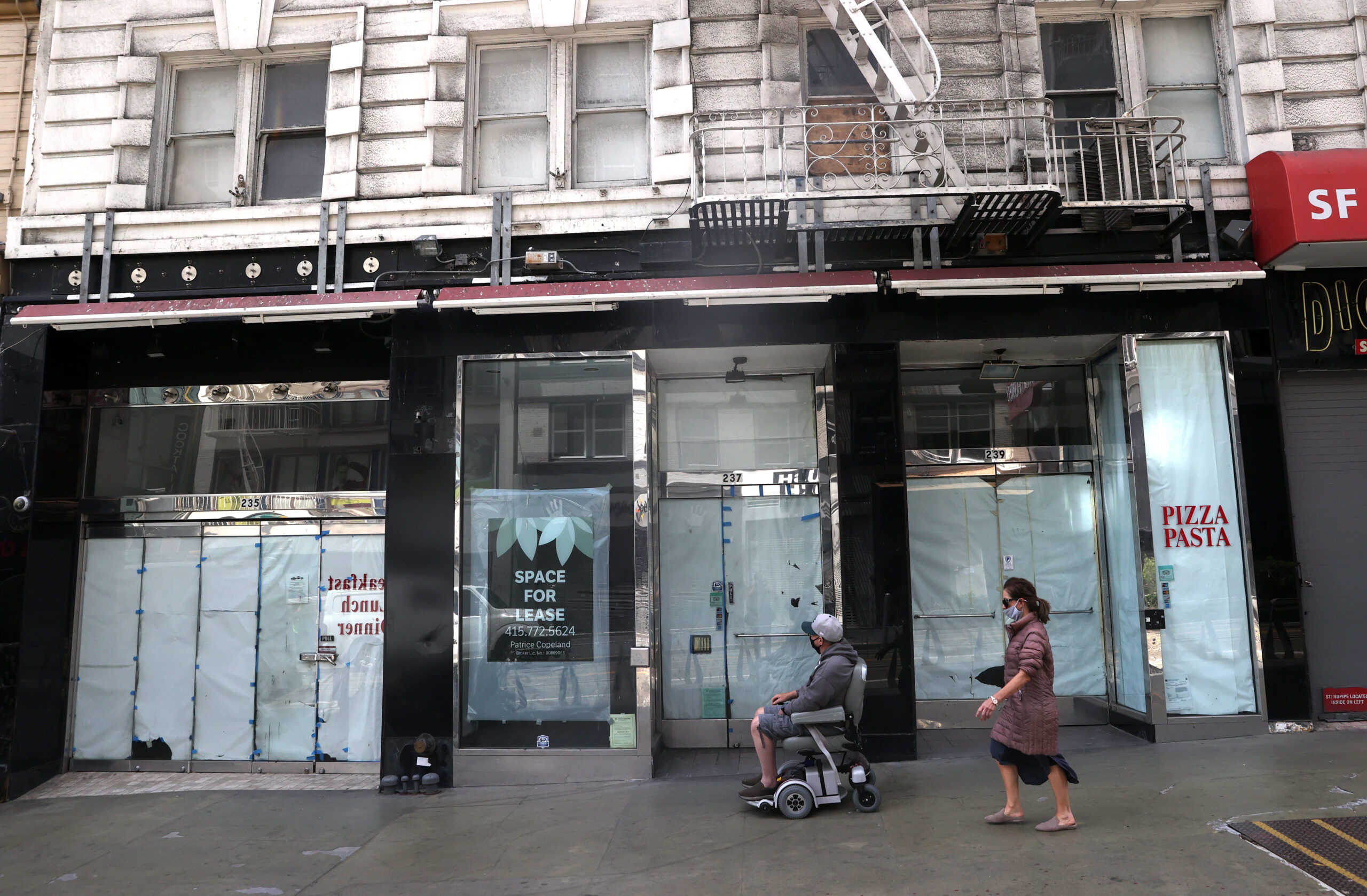With a moratorium on commercial evictions set to expire, San Francisco plans to establish a relief fund intended to help stave off a wave of closures and settle hundreds of millions in outstanding rent debt.
Combined with a forbearance period, the city hopes that the fund will save thousands of small businesses and jobs, said Supervisor Ahsha Safai at a hearing of the Board of Supervisors Budget and Finance committee on Wednesday. The three-person committee voted unanimously to advance the plan to the full board.
“This is an imminent crisis…with the scale of back rent exceeding the hundreds of millions, this is something we’re very concerned about,” said Safai. “It affects every single district and every single merchant corridor.”
If approved and signed by Mayor London Breed, a relief fund would be created to offer grants for commercial landlords. Safai proposed that the fund include $25 million—a fraction of the total back rent owed, according to estimates—though it’s not yet clear where the funding would come from.
Those landlords would have to agree to apply the full grant to the balance of back rent, and to renegotiate the lease with their tenant and cut a deal for the remaining balance. The Office of Economic and Workforce Development (OEWD) would administer the grants, which will be capped at $35,000 each.
Many business owners said they’d accrued tens of thousands in back rent during pandemic-related shutdowns, or had landlords who were unwilling to negotiate rent reductions as their revenues withered.
One speaker at Wednesday’s meeting, a stylist at House of Mahogany salon in the Ingleside district, said that the salon’s cooperative business model made it ineligible for federal Paycheck Protection Program (PPP) loans because it doesn’t pay out salaries.
“I think we all know the federal financial relief, through the Paycheck Protection Program and Restaurant Revitalization Fund loans, fell far short of our need,” added Laurie Thomas, executive director of the Golden Gate Restaurant Association. The Restaurant Revitalization Fund, approved by Congress in March, ran out of money in June and with a backlog of more than 177,000 applications.
Others described an impossible situation: Crushing rent debts, coupled with a dramatic and continuing drop in revenue.
“Our rent is one of the highest in the country; we owe hundreds of thousands in back rent,” said Sterling Quan of Lee’s Deli, a small chain of eateries in the Financial District. “We have reopened and are doing not even 10% of pre-COVID sales. It’s impossible to make up 18 months of lost sales—no one is coming in to eat twice a day.”
Commercial tenants, along with residential tenants, face a cliff at the end of this month.
California’s eviction moratorium expires on Sept. 30, and while some protections will stay in place—renters cannot be evicted if they’ve paid at least 25% of back rent, for example—some policymakers are concerned that the looming deadline could bring a wave of evictions, both of individuals and businesses. San Francisco small businesses employed about 364,000 people prior to the pandemic according to OEWD.
The eviction moratorium enacted at the federal level covered only residences, leaving states and local governments to write their own rules for commercial evictions. But further extensions to California’s residential and commercial eviction moratoriums appear “unlikely,” said Safai.
Earlier this week, the Board of Supervisors voted to enact a six-month forbearance period for businesses with between 50 and 99 employees, an expansion of existing provisions for smaller businesses.
In March, the city’s Budget & Legislative analyst estimated that San Francisco businesses had accrued as much as $400 million in unpaid rent between March and December 2020. Restaurants and bars were particularly hard hit, with retail tenants accounting for as much as 98% of the total unpaid rent.
